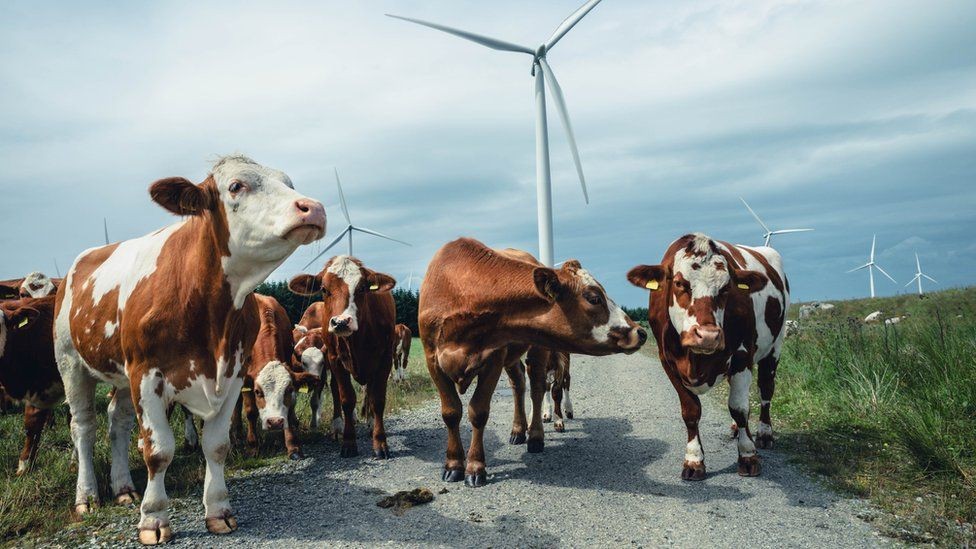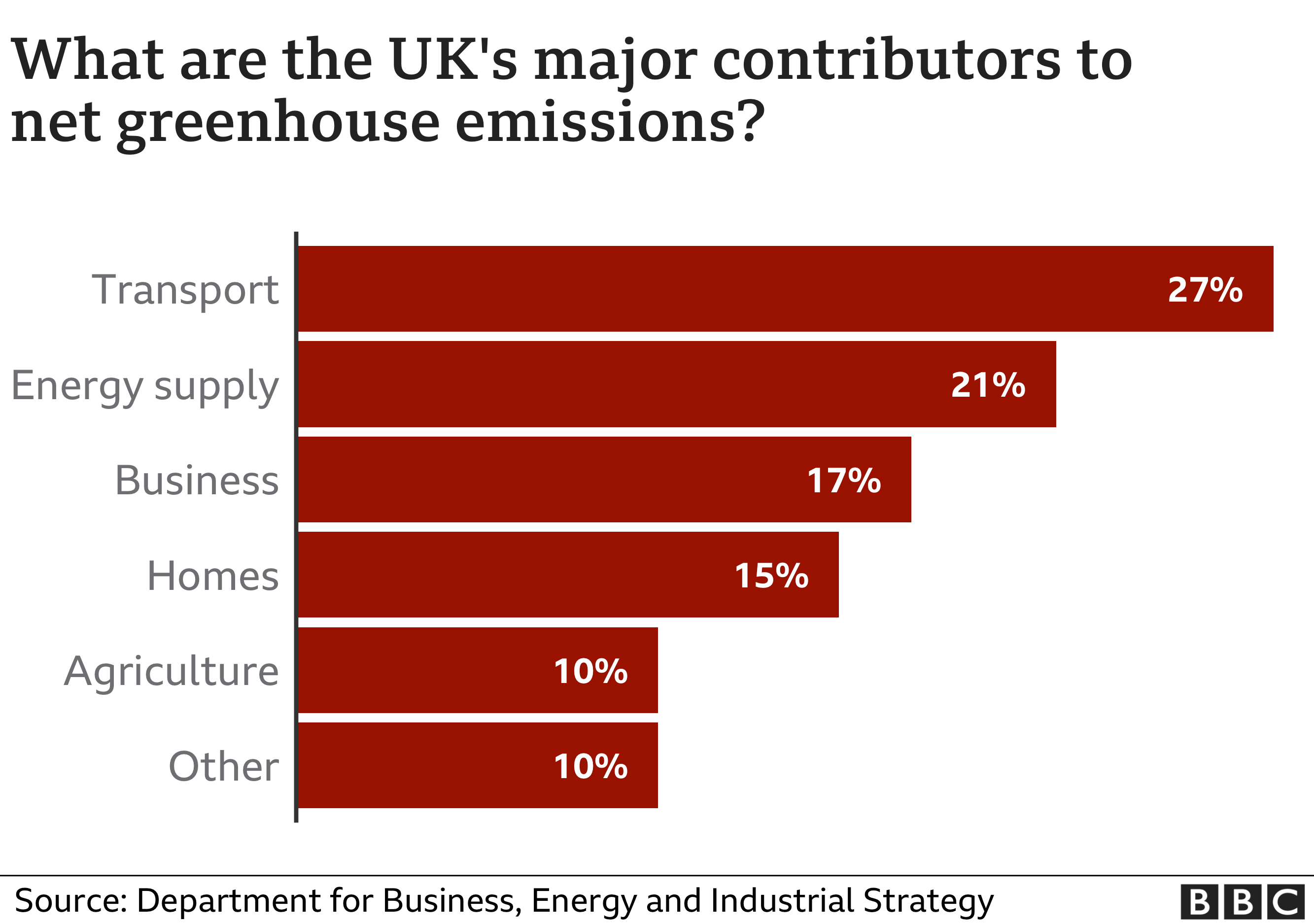
What is net zero and how are the UK and other countries doing?
Countries are setting out plans to cut greenhouse gas emissions, at the COP26 climate change summit in Glasgow.
They hope to achieve the target of "net zero" by 2050, to help slow global warming.
What does 'net zero' mean?
Net zero means not adding to the amount of greenhouse gases in the atmosphere.
Achieving it means reducing emissions as much as possible, as well as balancing out any that remain by removing an equivalent amount.
Greenhouse gases like carbon dioxide (CO2) are released when we burn oil, gas and coal for our homes, factories and transport. Methane is produced through farming and landfill. These gases cause global warming by trapping the sun's energy.
Meanwhile, rapid deforestation across the worldmeans there are fewer trees and plants to absorb CO2.
Under the 2015 Paris Agreement, 197 countries agreed to try to keep temperature rises "well below" 1.5C to avoid the worst impacts of climate change.
Experts say that to achieve this, net zero must be reached by 2050.
Will net zero mean a complete end to CO2 emissions?
Not all emissions can be reduced to zero, so those that remain have to be compensated for, or offset - for example, by planting more trees.
Almost every country has embarked on tree planting as a cheap way of reducing carbon, although there may not be enough space for the number required.
Carbon capture and storage has also been suggested as another solution.
This involves using machinery to remove carbon from the air, then solidifying it and burying it underground.
However, the technology is still emerging, very expensive and as yet unproven.
What will net zero mean for individuals?
It won't be easy.
Reaching net zero will involve moving from fossil fuels to renewable energy for our power, and abandoning vehicles run on petrol and diesel, in favour of those powered by electricity and hydrogen.
Gas central heating will need to be replaced by alternative sources, such as heat pumps.
Reaching net zero could also mean flying far less in future, and eating less red meat.
What has the UK committed to do?
Presenting the government's net zero strategy to the House of Commons in the run up to COP26, the government pledged:
- £620m in grants for electric vehicles and charging points, plus £350m to help the transition from petrol
- Grants of up to £5,000 for householders to install low-carbon heat pumps
- £120m to develop small nuclear reactors (no announcement on the go-ahead for the Sizewell C nuclear power station in Suffolk)
- £625m for tree planting and peat restoration
- More money for carbon capture and storage hubs

The government had already announced a ban on new petrol and diesel cars from 2030, and that all the UK's electricity will come from renewable sources by 2035.
At the time, Shadow Business Secretary Ed Miliband called the latest announcements "a massive let-down".
What have other countries promised?
More than 130 countries have pledged to reach net zero emissions before 2050.
However, China - currently the biggest producer of CO2 in the world - says it's aiming for "carbon neutrality" by 2060. It hasn't set out exactly what this means or how it will get there.
Russia - the third-largest producer of oil worldwide - has also pledged to reach net zero by 2060, although its draft commitment hasn't been legally ratified.
Until recently President Putin dismissed the risks posed by rising temperatures.
US President Joe Biden criticised the Russian and Chinese leaders for not attending the COP26 summit.
India - the world's fourth biggest emitter of CO2 after China, the US and the EU - has promised to cut its emissions to net zero by 2070.
Some of the world's most heavily populated countries - including Indonesia - haven't made any net zero commitment.
But many of the announcements which have already come out of the COP26 summit on deforestation, cutting methane and reducing coal are directly linked to helping countries hit their net zero goal.
What are the problems with the net zero target?
There's controversy about how some countries might try to reach net zero.
For instance, Country A might record lower emissions if it shuts down energy-intensive industries such as steel production.
But if Country A then imports steel from Country B, it's effectively handed on its carbon emissions to Country B instead of reducing the sum total of greenhouse gases.
There are schemes that enable rich countries to offset their emissions by paying poorer countries to switch to cleaner fuels.
However, some climate scientists worry such arrangements could let wealthier nations avoid reducing their own fossil fuel usage.
And it's hard to say that initiatives funded to offset emissions elsewhere would not have happened anyway.
The COP26 global climate summit in Glasgow in November is seen as crucial if climate change is to be brought under control. Almost 200 countries are being asked for their plans to cut emissions, and it could lead to major changes to our everyday lives.
